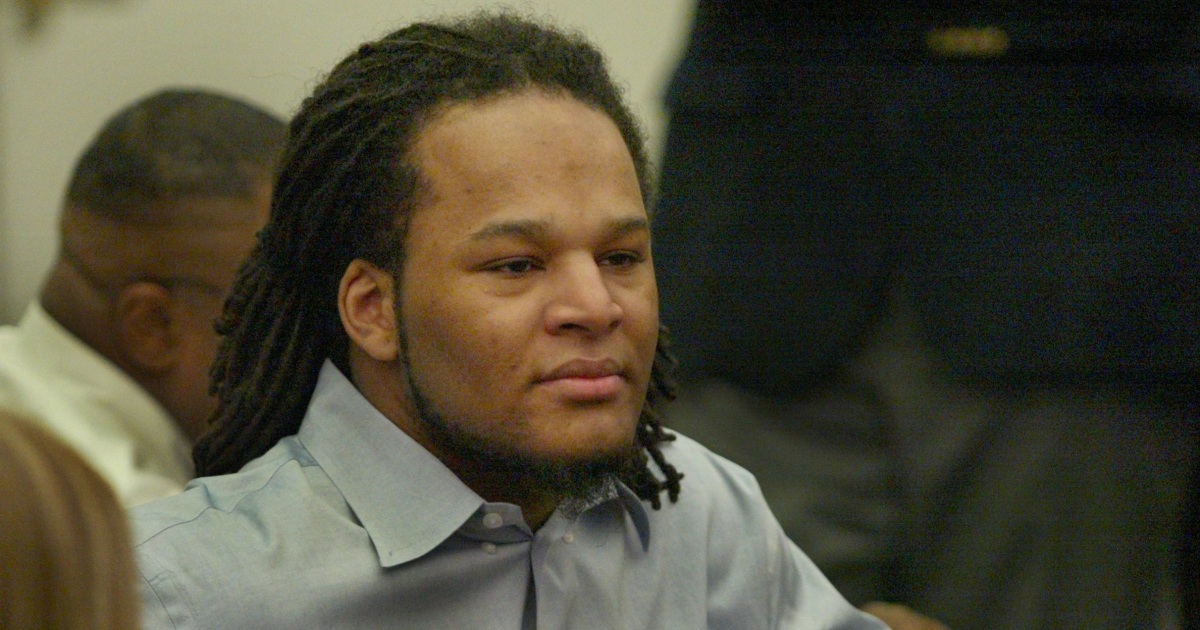A Missouri inmate convicted of ambushing and killing a St. Louis-area police officer he blamed for the death of his younger brother was executed Tuesday, authorities said.
Kevin Johnson, 37, was executed by lethal injection at Bonne Terre State Prison. and died at 7:40 p.m., according to Karen Pojmann, a spokeswoman for the Missouri Department of Corrections. Johnson had admitted to shooting and killing the Kirkwood police sergeant. William McEntee in 2005. Johnson was 19 years old at the time.
“Hopefully this will bring some closure to Sgt. McEntee’s loved ones, who continue to suffer without him,» Republican Gov. Mike Parson said in a statement read by the director of the state corrections department.
A court-appointed special prosecutor had tried to overturn his death sentence. Edward Keenan argued in a appeal to the Missouri Supreme Court that Johnson’s trial was «infected» with racist prosecution techniques and that racial profiling played a role in his receiving the death penalty.
One of Johnson’s attorneys, Shawn Nolan, said Johnson was «a completely rehabilitated man.»
«Make no mistake about it, Missouri capitally indicted, sentenced to death and killed Kevin because he is black,» Nolan said in a statement.
Johnson was executed after the US Supreme Court denied a request for a stay of execution on Tuesday night. Judges Sonia Sotomayor and Ketanji Brown Jackson reportedly granted it, court records show.
The decision followed a decision Missouri Supreme Court Monday night denying a stay of execution. Parson also announced Monday that he would not grant clemency.
«The violent murder of any citizen, let alone a Missouri law enforcement officer, should receive only the fullest punishment that state law allows,» Parson, a Republican and a former county sheriffsaid in a statement. «Through Mr. Johnson’s own heinous actions, he stole the life of Sergeant McEntee and left a grieving family, a widowed wife and fatherless children. No leniency will be granted.»
On July 5, 2005, police were searching for Johnson, who was on probation for assaulting his girlfriend. The police believed that he had violated probation. McEntee was among the officers dispatched to the Johnson home.
Johnson’s 12-year-old brother, who had a congenital heart defect, rushed to his grandmother’s house, where he suffered a seizure. He died at the hospital. Johnson testified at trial that McEntee prevented his mother from entering the house to help his brother. According to Johnson, that same night he ran into McEntee as he was returning to his neighborhood from an unrelated call about a fireworks riot. Johnson shot McEntee multiple times and fled, according to prosecutors. He turned himself in three days later.
Keenan, the special prosecutor, told the state Supreme Court that former St. Louis County District Attorney Bob McCulloch’s office handled five cases in which the defendants were accused of killing police officers during their tenure. McCulloch sought the death penalty against the four black defendants, but did not seek death in the one case in which the defendant was white, according to the docket.
«The trial prosecutor invited only the white defendant to present mitigating circumstances for consideration before the prosecutor decided whether to seek the death penalty, and the prosecutor did not seek the death penalty against the white defendant thereafter.» Keenan said, according to a statement. separate court filing. «No similar invitations to present mitigating evidence were extended to any of the four black defendants.»
The stay motion states: «After a thorough review of the facts of all five cases, and an exhaustive search for contemporary internal rules, guidelines, and memoranda reflecting the decisions, there are simply no discernible legitimate features of the case that could plausibly explain unequal treatment».
Keenan also said in a filing that in statements McCulloch made to other prosecutors, he displayed «particular animosity toward young black men like Mr. Johnson, viewing them as a population we ‘had to deal with’ and portraying them as stereotypical criminals. .»
McCulloch could not immediately be reached for comment.
Johnson’s 19-year-old daughter, Khorry Ramey, tried to witness the execution, but state law prohibits anyone under 21 from watching the process. The American Civil Liberties Union filed a lawsuit last week she asked a federal court to allow her to attend her father’s scheduled execution, but a judge ruled Friday that a state law barring her from being present because of her age was constitutional.

